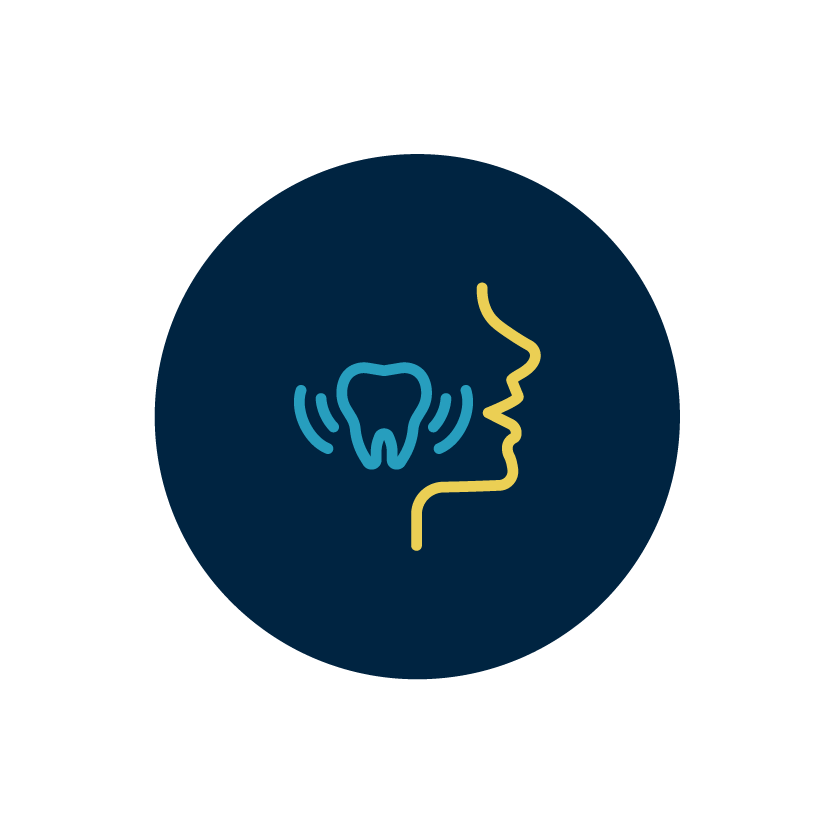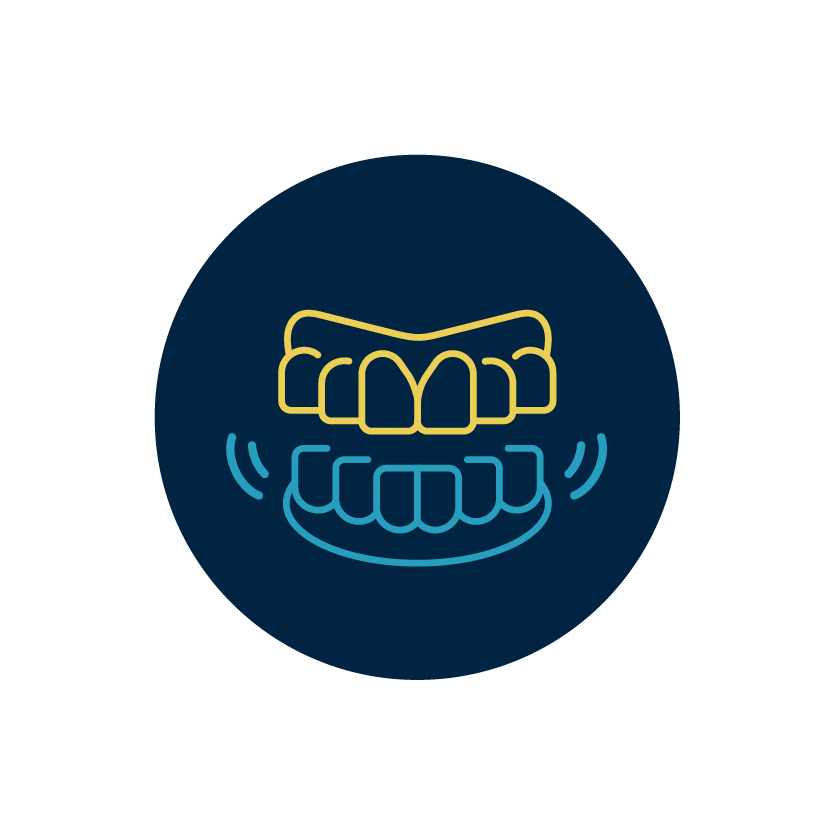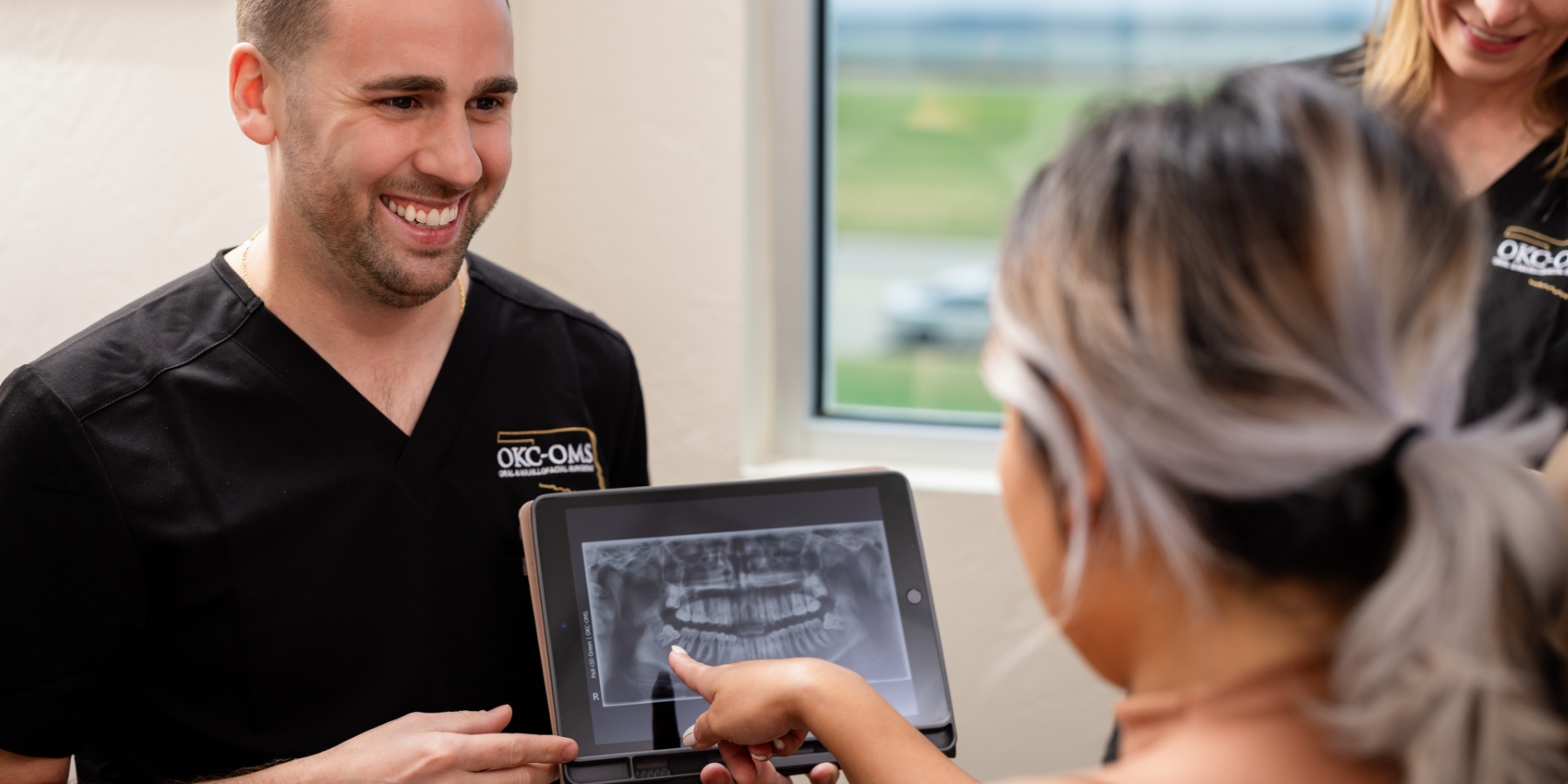
By the age of 18, the average adult has 32 teeth; 16 teeth on the top and 16 teeth on the bottom. Each tooth in the mouth has a specific name and function. The teeth in the front of the mouth (incisors, canine, and bicuspid teeth) are ideal for grasping and biting food into smaller pieces. The back teeth (molar teeth) are used to grind food up into a consistency suitable for swallowing.
The average mouth is made to hold only 28 teeth. It can be painful when 32 teeth try to fit in a mouth that holds only 28 teeth. These four other teeth are your third molars, also known as “wisdom teeth.”
Why Should I Have My Wisdom Teeth Removed?
Wisdom teeth are the last teeth to erupt within the mouth. When they align properly and gum tissue is healthy, wisdom teeth do not have to be removed. Unfortunately, this does not generally happen. The extraction of wisdom teeth is necessary when they are prevented from properly erupting within the mouth. They may grow sideways, partially emerge from the gum, and even remain trapped beneath the gum and bone. Impacted teeth can take many positions in the bone as they attempt to find a pathway that will allow them to successfully erupt.
These poorly positioned impacted teeth can cause many problems in most of the Oklahoma City patients. When they are partially erupted, the opening around the teeth allows bacteria to grow and will eventually cause an infection. The result: swelling, stiffness, pain, and illness. The pressure from the erupting wisdom teeth may move other teeth and disrupt the orthodontic or natural alignment of teeth. The most serious problem occurs when tumors or cysts form around the impacted wisdom teeth, resulting in the destruction of the jawbone and healthy teeth. Removal of the offending impacted teeth usually resolves these problems. Early removal is recommended to avoid such future problems and to decrease the surgical risk involved with the procedure.
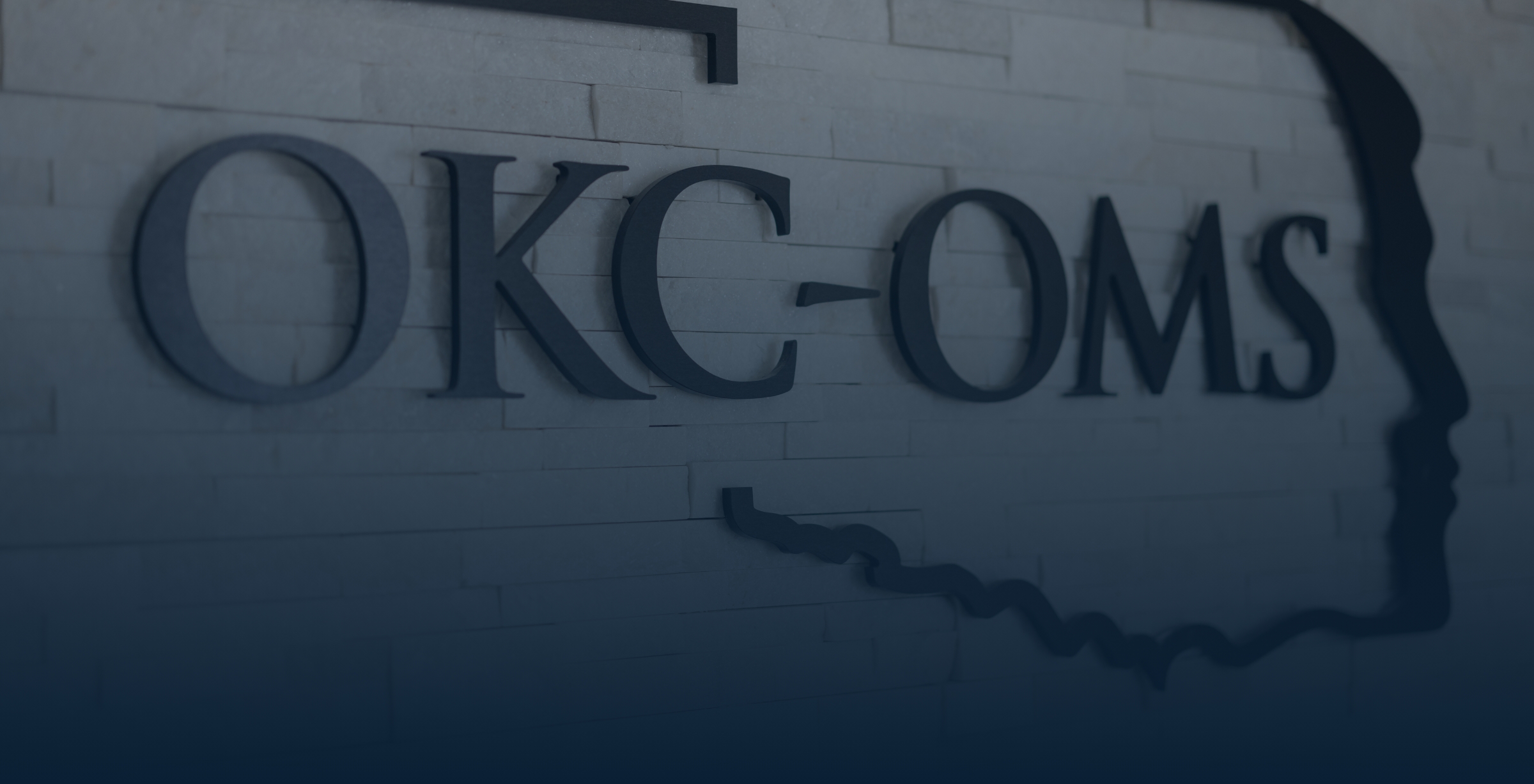
Wisdom Tooth Surgery
Play Video
Wisdom Tooth Surgery
Signs of Wisdom Teeth Impaction
Oral Examination
With an oral examination and x-rays of the mouth, Our OKC-OMS Doctors in Oklahoma City can evaluate the position of the wisdom teeth and predict if there are present or may be future problems. Studies have shown that early evaluation and treatment result in a superior outcome for the patient. Patients are generally first evaluated in the mid-teenage years by their dentist, orthodontist or by an oral and maxillofacial surgeon.
All outpatient surgery is performed under appropriate anesthesia to maximize patient comfort. Our Doctors have the training, license, and experience to provide various types of anesthesia for our Oklahoma City patients to select the effective alternative.
The Wisdom Teeth Removal Process
At OKC-OMS, our goal is to make every step of your wisdom teeth removal as simple and comfortable as possible. Here’s what you can expect:
Step 1: Your Personalized Anesthesia Plan
Before your procedure, our team will review anesthesia options such as local anesthesia, laughing gas (nitrous oxide/oxygen), or general anesthesia. We’ll discuss which choice is right for you and review any possible surgical risks.
Step 2: Gentle Wisdom Teeth Removal
Once you’re comfortable, your doctor will carefully remove the wisdom teeth. The gum area is then sutured to support proper healing and comfort.
Step 3: Wisdom Teeth Removal Recovery in Our Care
You’ll rest under our supervision until you’re ready to head home. A gauze pad will help control bleeding, and our team will ensure you’re feeling stable before discharge.
Step 4: At-Home Healing
You’ll leave with:
- Detailed postoperative care instructions
- Prescriptions for pain relief and antibiotics
- A follow-up appointment about one week later for suture removal
Our team is here to guide you every step of the way.

Wisdom Teeth Removal
Play Video
Wisdom Teeth Removal
Wisdom Teeth Removal Recovery Timeline
The amount of time it takes to recover from wisdom teeth removal can vary from patient to patient. While most will feel largely “normal” again within three or four days, those with impacted or oddly angled wisdom teeth may need a little more time to mend. What follows is a general timeline for what wisdom tooth recovery might look like.
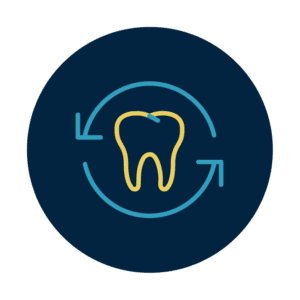
The First 24 Hours
The first 24 hours are usually the hardest part of the recovery process. During this first day, blood clots will form, which is a sign that your body has already begun the healing process. Patients are encouraged to spend the day resting and recovering. Some pain and swelling are to be expected, but medications can be used to manage them.

2-3 Days
Within two or three days, most patients begin to see significant improvement with regard to the swelling in their mouth and cheeks. Patients may also find that their pain and discomfort lessen. However, it is still best to take it easy, abstain from vigorous physical activity, and allow the body some additional time to heal.

7 Days
After a week of recovery, most patients will feel largely back to normal. If there are any stitches that need to be removed, this is usually when it happens. For most patients, pain and swelling should have largely subsided by this point, though there can sometimes be lingering effects, especially for those whose teeth were impacted.

7-10 Days
Within 7 to 10 days, the last remaining stiffness and jaw soreness should go away. There may still be some minor bruising around the face, but even patients with more serious side effects will likely feel fairly normal by this point. If side effects persist, it is wise to call the practice to inquire about a follow-up.
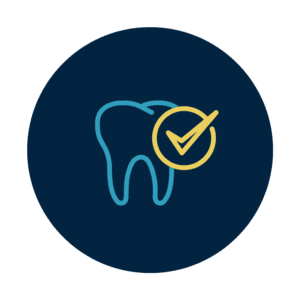
2 Weeks
For some patients, it may take up to two full weeks for all of the facial bruising to subside. By this point, all other side effects should also be resolved. Again, for those who do continue to experience unwanted effects of the surgery, it may be prudent to call and ask about a potential follow-up.
Wisdom Teeth Removal FAQs
Considering wisdom teeth removal? This FAQ section clarifies common concerns, from necessity to recovery.
Average Cost of Wisdom Teeth Removal
There are a number of factors for patients to consider as they prepare for the removal of their wisdom teeth; one of those factors is cost.
The cost of wisdom teeth removal can vary depending on several different factors. One factor is the number of wisdom teeth that must be removed; generally, patients pay on a per-tooth basis. Additionally, the cost for wisdom tooth removal may be higher if the tooth is impacted. A simpler, more straight-forward surgical wisdom tooth extraction will come with a lower price point.
More complicated procedure involving the extraction of impacted wisdom teeth might potentially be covered by medical insurance. The insurance coordinators will provide you with a detailed breakdown of your costs and your coverages at the time of your consultation.
Our services are provided in an environment of optimum safety for our Oklahoma City patients, utilizing modern monitoring equipment and staff who are experienced in anesthesia techniques. Contact us in the Oklahoma City area for an appointment.



